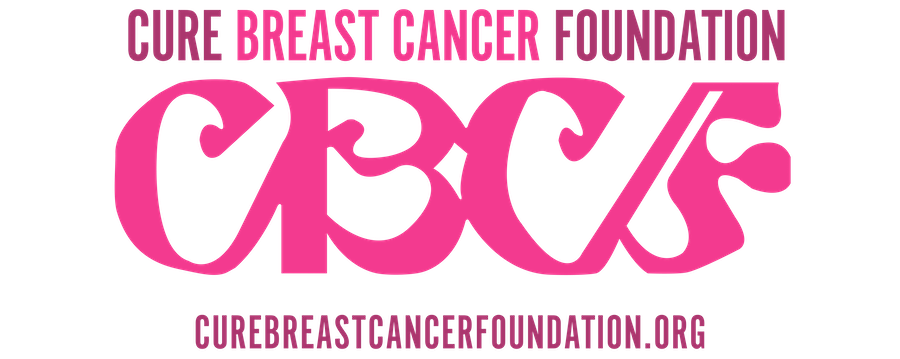Our Mission
Breast cancer is one of the leading causes of cancer deaths among women. Science and medicine have made significant strides in controlling breast cancer—with a 40% decline in deaths in the U.S. according to recent statistics—which demonstrates that (1) progress can be made (it is not a hopeless struggle), and (2) much more work needs to be done. The key to complete success is innovation. That is what the Cure Breast Cancer Foundation (CBCF) is all about.
The CBCF is a 501(c)(3) not-for-profit organization created to support groundbreaking breast cancer research under the direction of noted oncologist, Dr. Larry Norton, at the world-renowned Memorial Sloan-Kettering Cancer Center and its national and international research collaborators. Since its inception in December 2007, CBCF has raised over $11 million for this effort.
CBCF differs from other philanthropic organizations because instead of raising money for breast cancer research in general, the CBCF is devoted entirely to the team that is expanding our knowledge of the phenomenon they discovered called the Self-Seeding Model of Cancer. These scientists found that cancers grow in two ways: by cell division (the classical method) but also by cancer cells that leave the tumor mass, circulate in the blood, and return to the tumor, newly invigorated. This latter phenomenon was not appreciated at all prior to their work but is now becoming recognized as valid, common, and clinically important. Self-seeding is closely related to metastasis, the well-recognized process by which cancer cells in a primary tumor (say, in the breast) leave the tumor mass, circulate in the blood, and lodge in other organs (bone, lung, liver, etc.) where they may grow to threaten life. Indeed, metastases are the major cause of breast cancer mortality.
For these reasons CBCF scientists are conducting many critical studies:
- What is the role of white blood cells (leukocytes) in self-seeding? White blood cells are the main component of the immune system, which is now known to be important in controlling cancer to some extent. But some white blood cells play an entirely contrary role. They may stimulate cancer growth by secreting growth-promoting substances. In addition, some white blood cells may suppress the cancer-killing actions of different white blood cells. By examining the DNA of leukocytes found inside of cancers (called tumor-infiltrating leukocytes, or TILs) CBCF-supported research has found that TILs may themselves be mutant. So in addition to the well-established fact that cancer cells have DNA mutations, the white cells in close proximity to them could also have abnormal DNA, indeed often the same mutations found in leukemia and other blood cancers. This is a remarkable and previously unappreciated component of the cancer problem.
- What role do these mutant leukocytes play in stimulating growth? Are these mutant TILs a possible therapeutic target? Do they suppress the ability of cancer-killing leukocytes (activated T-cells) to do their job? When patients develop other diseases—heart disease, other cancers, leukemia—do these mutant TILs play a role? These questions relate closely with the rapidly expanding field of hematopoietic clonal hematopoiesis (CH). Many patients with cancers (not just breast cancer) and even some people without cancer have leukocytes in their circulating blood that harbor these same cancer-causing mutations, and this phenomenon is now being linked to the development of heart and other vascular problems.
- What happens to mutant TILs in response to anti-cancer therapy?
- Does the presence of mutant TILs alter the occurrence of other diseases after a cancer is cured?
- Some people inherit abnormal genes from their mother or father that predispose them to getting breast and other cancer. Does such inheritance influence CH or the appearance of mutant TILs?
- Does anti-cancer therapy—designed to kill cancer cells—paradoxically stimulate metastases and self-seeding? CBCF scientists are following up on tantalizing evidence that chemotherapy switches on a gene in the cancer cell called p21 that may have exactly this effect, meaning that p21 could be a novel and important target of new classes of anticancer drugs.
- CBCF scientists have discovered that a history of breast cancer weakens bones independent of the degree of osteoporosis/osteopenia. Many of the biochemical signals that bones use to maintain their strength are also implicated in cancer. What is the chemical relationship between bone health and breast cancer, and how does this relate to the process of self-seeding?
These are novel, engrossing, and clinically-relevant questions. Donations to the Cure Breast Cancer Foundation will accelerate progress, making discoveries with extraordinary potential to control, cure, and ultimately prevent cancers of the breast and likely other organs. CBCF is all about innovation, and innovation is what is needed to triumph over cancer.
